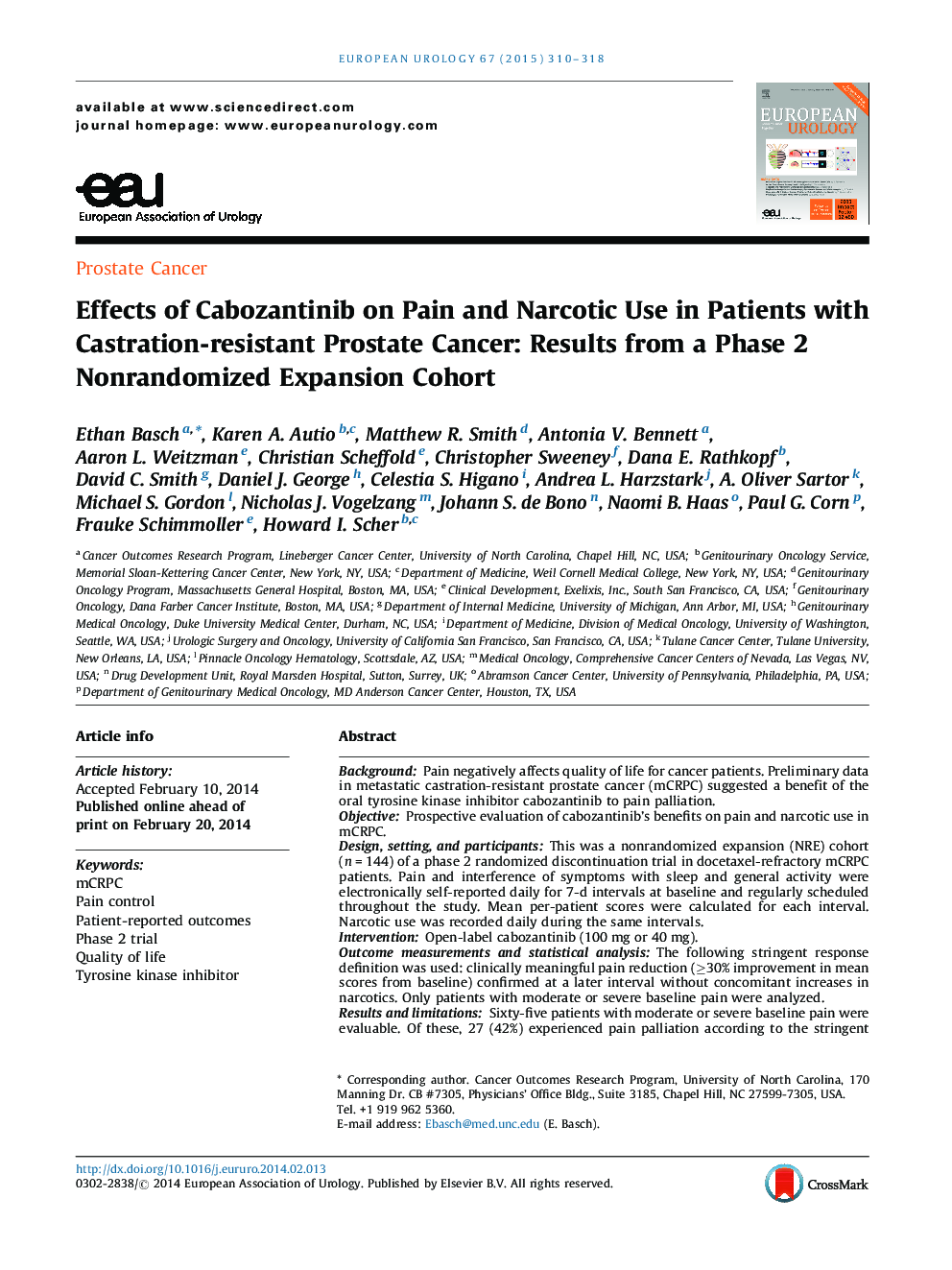| کد مقاله | کد نشریه | سال انتشار | مقاله انگلیسی | نسخه تمام متن |
|---|---|---|---|---|
| 3923708 | 1253064 | 2015 | 9 صفحه PDF | دانلود رایگان |
BackgroundPain negatively affects quality of life for cancer patients. Preliminary data in metastatic castration-resistant prostate cancer (mCRPC) suggested a benefit of the oral tyrosine kinase inhibitor cabozantinib to pain palliation.ObjectiveProspective evaluation of cabozantinib's benefits on pain and narcotic use in mCRPC.Design, setting, and participantsThis was a nonrandomized expansion (NRE) cohort (n = 144) of a phase 2 randomized discontinuation trial in docetaxel-refractory mCRPC patients. Pain and interference of symptoms with sleep and general activity were electronically self-reported daily for 7-d intervals at baseline and regularly scheduled throughout the study. Mean per-patient scores were calculated for each interval. Narcotic use was recorded daily during the same intervals.InterventionOpen-label cabozantinib (100 mg or 40 mg).Outcome measurements and statistical analysisThe following stringent response definition was used: clinically meaningful pain reduction (≥30% improvement in mean scores from baseline) confirmed at a later interval without concomitant increases in narcotics. Only patients with moderate or severe baseline pain were analyzed.Results and limitationsSixty-five patients with moderate or severe baseline pain were evaluable. Of these, 27 (42%) experienced pain palliation according to the stringent response definition. Thirty-seven patients (57%) had clinically meaningful pain relief at two consecutive intervals, reported ≥6 wk apart in the majority. Forty-four patients (68%) had palliation at one or more intervals; 36 (55%) decreased narcotics use during one or more intervals. Clinically meaningful pain reduction was associated with significant (p ≤ 0.001) improvements in sleep quality and general activity. A limitation of this study was its open-label design.ConclusionsCabozantinib demonstrated clinically meaningful pain palliation, reduced or eliminated patients’ narcotic use, and improved patient functioning, thus meriting prospective validation in phase 3 studies.Patient summaryWe evaluated the potential of cabozantinib to improve symptoms in patients with metastatic prostate cancer that no longer responds to standard therapies. We saw a promising reduction in pain and reduced need for narcotic painkillers. Larger, well-controlled trials are necessary to confirm these findings.
Journal: European Urology - Volume 67, Issue 2, February 2015, Pages 310–318
